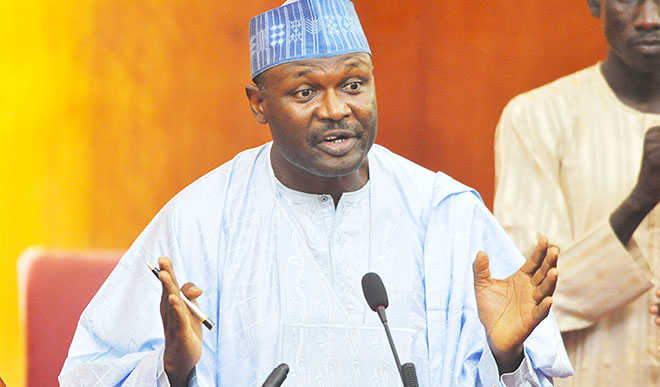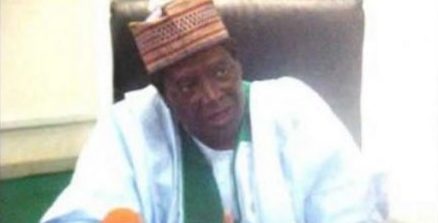The Independent National Electoral Commission (INEC) has refuted negative insinuations trailing its decision to suspend the recall process of Sen. Dino Melaye, representing Kogi West, in compliance with a court order.
Prof. Okechukwu Ibeanu, National Commissioner and acting Chairman of INEC said in a statement he issued on Saturdayin Abuja that the attention of the commission had been drawn to some media reports about its decision to obey the court order.
He said some of the reports were claiming that INEC was being blackmailed into abandoning the process as a result of the decision of Senate to probe the Tertiary Education Trust Fund (TEFUND).
He said relating INEC’s decision to the Senate’s intention to probe TETFUND, where the present INEC Chairman, Prof. Mahmood Yakubu, previously served as Executive Secretary, was false and misleading.
He also described it as a deliberate attempt to portray the commission in a bad light and cast aspersions on it.
“The Commission wishes to state unequivocally and categorically that these reports are totally incorrect and mischievous,” he said.
Ibeanu said that while the commission formally acknowledged the receipt of the petition submitted to it by some registered voters from Kogi West, it also notified Melaye about the development in writing.
He added that in line with the powers conferred on it by the Constitution and the Electoral Act, the Commission on July 3, formally announced the timetable and schedule of activities for the recall of the Senator.
He stated that the commission, in line with its issued timetable for the recall, pasted the Notice of Verification at the Kogi West Constituency (INEC Office in Lokoja) on July 10.
“However, on the same July 10, INEC received an order given by the Federal High Court, Abuja, and dated July 6.’’
He said that the order in respect to suit filed by Melaye, directed the “parties to maintain the status quo till the determination of the plaintiff’s motion on notice.’’
Ibeanu added that the Judge, in granting the relief sought by the Senator, also fixed Sept. 29 as the date to hear the Motion on Notice.
He said that by this date, the 90-day timeframe established by the Constitution for the entire recall process to be completed, would have lapsed.
He said that deeply concerned by this situation, INEC considered the court order and its implication for the Commission’s ability to carry out its constitutional function regarding the petition to recall the Senator.
He stated that after weighing all the options, the Commission, as a responsible organisation, decided that it should not be seen to be disobeying a court order, however inappropriate it may consider the order.
“However, in this particular case, the Commission also decided to take immediate steps to vacate the court order and for the matter to be heard and determined expeditiously,” he said.
This, he said, was to ensure that the case was determined within a limit of 90 days from the date of the presentation of the petition that the exercise must be completed.
Ibeanu added that INEC also decided to draw the attention of the Chief Justice of Nigeria to the order, in view of its effect on the performance of its constitutional duty to conduct the referendum for the recall.
“Besides, the Commission considered it important to draw the Chief Justice’s attention to the matter for immediate judicial intervention.’’
This, according to him, is to avoid situation where, if a similar cases arises in the future, the Commission’s work will be imperilled, as any individual could rush to court to stop what is clearly a constitutional process.
“In fact, contrary to the impression given by the misleading reports, the INEC Chairman, Yakubu, was not even at the meeting where the Commission took the decision to obey the court order.
“Yakubu is currently leading a team of the ECOWAS Network of Electoral Commissions (ECONEC) on an official fact-finding mission to some West African countries, in his capacity as the body’s President,” he explained.
He assured Nigerians that INEC would continue to diligently carry out its constitutional functions without fear, favour, affection or ill will.












